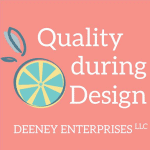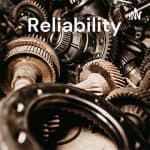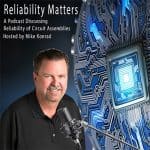
Reliability Tradeoffs
Abstract
Kirk and Fred discuss the tradeoffs involved in developing a reliable product.
ᐅ Play Episode
Your Reliability Engineering Professional Development Site

Kirk and Fred discuss the tradeoffs involved in developing a reliable product.
ᐅ Play Episode
by Enrico Belmonte Leave a Comment

Enrico and Fred discuss one of the most critical questions in reliability engineering.
ᐅ Play Episode
by Dianna Deeney Leave a Comment

Tradespeople bring expertise, innovation, high quality, and leadership to product development. If we’re lucky enough to be able to work with them, they’re an invaluable part of the engineering team.
What about when we’re working without them? How can we create a culture of craftsmanship in a company that uses a quality system?
In this episode, we talk about the crafts’ and trades’ relationship with quality systems, and steps toward creating a culture of craftsmanship.
by Philip Sage Leave a Comment
by Akshay Athalye Leave a Comment

If you want to learn more about the different distributions, feel free to ask me or Miguel, and we will be more than happy to help where we can.
by Christopher Jackson Leave a Comment

Some of you might have heard of the ‘bell curve.’ Some of you might have heard that the ‘bell curve’ is sometimes called the ‘normal distribution.’ There is a reason it is called normal … but that is not always obvious. But then there is the ‘lognormal distribution.’ What is this? … and how does it relate back to the ‘bell curve?’ There is a really good reason for this link. And the good thing is that all you need is just a little bit of knowledge about how something breaks (and is repaired) to help use the lognormal distribution to help you make lots of important decisions … easily!
[Read more…]
by Mike Konrad Leave a Comment

Today, we’re exploring a transformative topic: AI-based inspection technologies.
Artificial intelligence is revolutionizing how we detect, analyze, and address defects in the electronics assembly process, combining precision with unparalleled speed to unlock new possibilities for efficiency and reliability.
Our guest today is a leading innovator in this field. Priyansha Bagaria is the founder and CEO of Loopr AI, a company at the forefront of AI-powered solutions for manufacturing inspection.
Priyansha holds an MBA in International business and Global management, a bachelors of engineering degree in computer Science, and she held a fellowship in data science at Cornell University.
Her academic background, coupled with her entrepreneurial spirit, has positioned her as a trailblazer in applying AI to manufacturing processes.
In this episode, we’ll explore the advancements Loopr AI is spearheading, how AI inspection technologies are reshaping traditional methods, and the tangible benefits AI offers to manufacturers striving for excellence.
Loopr AI Website:
https://www.loopr.ai
by Philip Sage Leave a Comment

Philip and Fred discuss the considerations when the dataset does not have competing risks.
ᐅ Play Episode
by Carl S. Carlson Leave a Comment

Carl and Fred discuss Failure Mode and Effects Analysis and Artificial Intelligence. There are emerging integration opportunities and challenges, which will be discussed in this podcast.
ᐅ Play Episode
by Akshay Athalye Leave a Comment

So grab your hard hat and let’s break ground on some eye-opening conversations that can transform the way you think about reliability in mining.
If you have a question and want to contact Miguel, you can get in touch via Linkedin.
by Carl S. Carlson Leave a Comment

Carl and Fred discuss an interesting question from an Accendo listener. The question has to do with what is called NUDD: New, Unique, Difficult, Different.
Specifically the listener’s management wanted to know if their NUDD process could replace FMEA.
ᐅ Play Episode
by Fred Schenkelberg Leave a Comment

Life testing a product or component, at times, involves months and months of testing. Even accelerated life testing can take a long time, given the limitation on our ability to cause the proper acceleration for meaningful results. So, what is one to do if waiting 3 months for test results is unacceptable?
Let’s explore a few alternatives along with the pros and cons. We examine using our knowledge and the knowledge of others to streamline the testing or avoid it altogether. We also need to consider why we need to estimate life in the first place. Sometimes, estimating the life of something is not all that useful or valuable. [Read more…]
by Mike Konrad Leave a Comment

Today, we’re diving into one of the most transformative innovations of our time: electric vehicles and the vast infrastructure needed to support their growth.
Joining us is Brian O’Leary, Global Head of of e-Mobility & Infrastructure at Indium Corporation, a leading expert with deep insights into the electronic assembly industry and its critical role in the EV revolution.
As electric vehicles continue to redefine the future of transportation, the reliability and scalability of the infrastructure that powers them—particularly public EV charging stations—have become pivotal challenges.
The electronic assembly industry is at the heart of these systems, from the semiconductors enabling fast charging to the sensors ensuring safe and efficient operation. However, with nearly 26% of public EV charging stations estimated to be non-functional at any given time, reliability remains a significant hurdle.
This episode will explore the major reliability issues plaguing public EV charging stations, including power instability, component failures, and environmental challenges.
How innovations in electronics design and assembly can address these challenges, from improving thermal management to leveraging advanced materials like those developed by soldering materials manufacturers.
The exciting opportunities for the electronics industry to lead the charge in building a more resilient, reliable, and efficient EV infrastructure.
Brian O’Leary brings a wealth of knowledge on how advanced materials, smart assembly techniques, and innovative designs can solve these pressing issues and accelerate the adoption of electric vehicles.
Together, we’ll review the technical challenges, explore solutions, and look ahead to the bright future of electric mobility.
Brian O’Leary’s Contact Info:
boleary@indium.com
https://www.indium.com

Kirk and Fred discuss the subject of reliability and how appliance manufacturing companies may design for a limited life in order to sell new models.
ᐅ Play Episode
 Ask a question or send along a comment.
Please login to view and use the contact form.
Ask a question or send along a comment.
Please login to view and use the contact form.